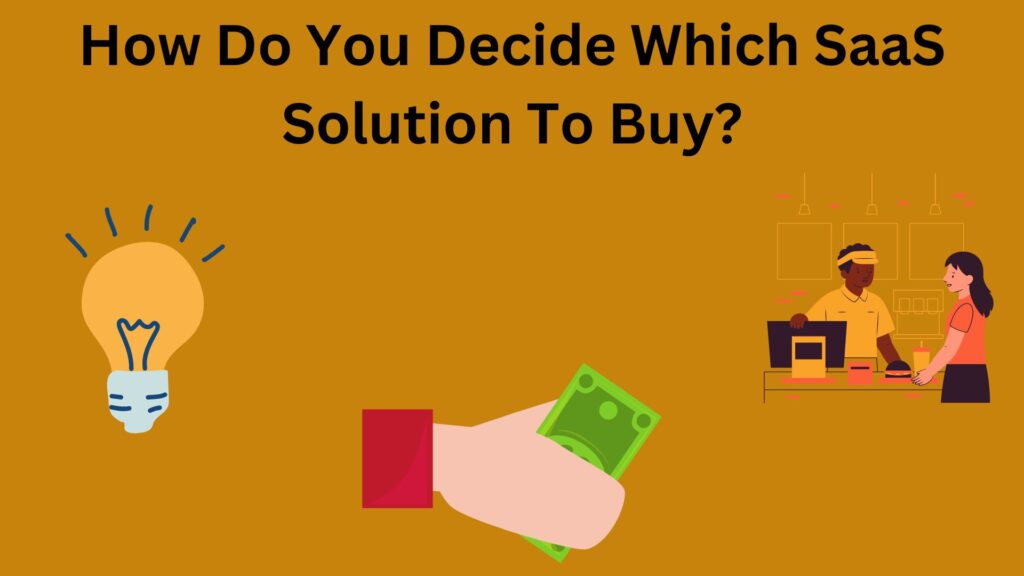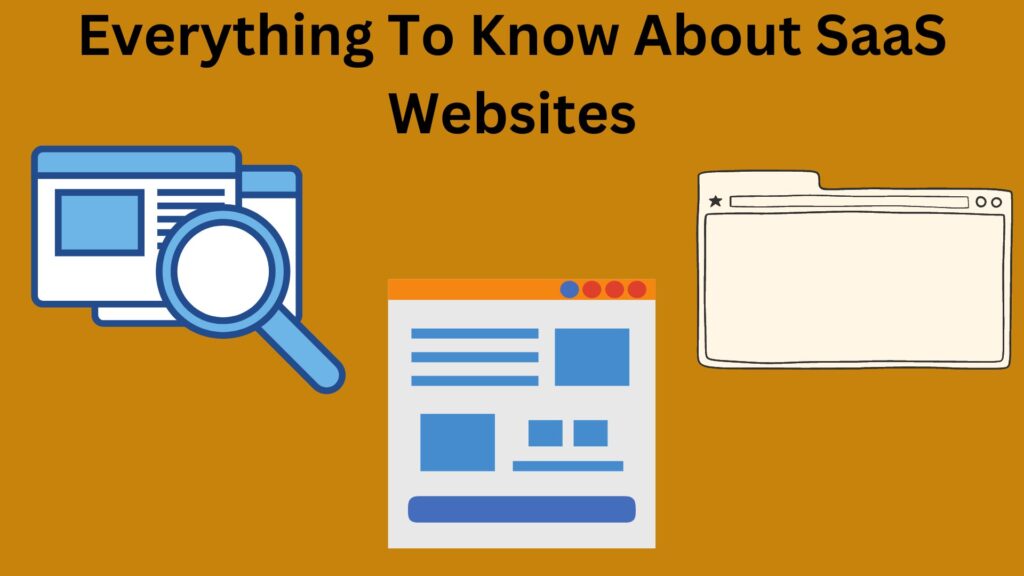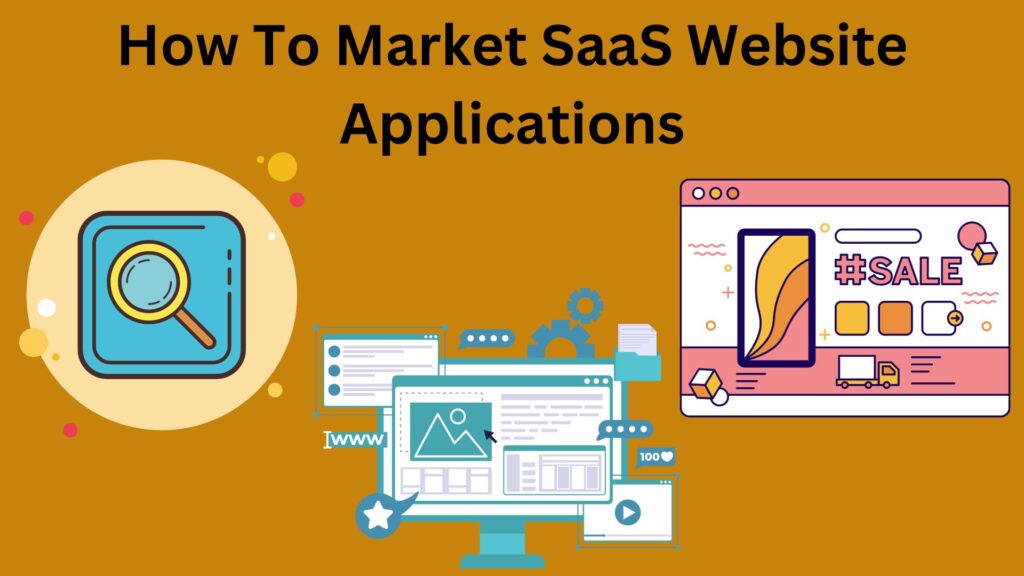You understand the importance of harnessing technology to streamline processes and improve productivity as a business owner or professional. One method is to use “software as a service” (SaaS) solutions, which are cloud-based programs that may be accessed on a subscription basis over the internet. SaaS solutions are available for almost every company function, from project management to customer relationship management to human resources.
But, with so many possibilities, how can you know which one is the greatest fit for your requirements?
First and first, you must evaluate your individual demands and goals. What issues are you attempting to resolve? What characteristics are most important to you? A comprehensive grasp of your needs can help you narrow down your possibilities.
Next, think about the pricing model of the SaaS products you’re considering. Some charge a set monthly subscription, while others charge according to the number of users or data saved. It’s critical to evaluate the total cost of ownership and whether the pricing fits within your budget.
Another thing to think about is the vendor’s reputation and customer service. Is their track record in the industry impressive? Do they provide dependable customer service and software upgrades on a regular basis? It is critical to select a vendor you can rely on for continuing support.
It’s also a good idea to read customer reviews and testimonials to get a sense of their experience with the SaaS product.
You may make an informed selection of the finest SaaS solution for your needs by taking these considerations into account. In our blog, we’ll go over each of these factors in further detail and provide additional suggestions and resources to help you make the best decision.
Factors To Consider When Evaluating SaaS Pricing
There are various aspects to consider when analyzing SaaS pricing:
- Pricing model: Different pricing models for SaaS solutions exist, such as a fixed monthly fee, a fee depending on the number of users, or a fee based on the amount of data saved. It is critical to comprehend the pricing model and select which one best fits your budget.
- Contract terms: Some SaaS providers provide contracts with a one-year or two-year minimum commitment duration. It’s critical to assess whether the contract terms correspond with your company’s needs and whether you’re willing to commit to a long-term relationship.
- Hidden costs: Be aware of any hidden prices, such as setup fees or payments for extra functionality. Make sure you understand the overall cost of ownership and consider it in your selection.
- Scalability: If your company is expected to expand, think about whether the SaaS solution is scalable and whether the pricing model allows for expansion.
- Cost Comparison: To guarantee you’re obtaining a competitive price; check the pricing of the SaaS service you’re contemplating with that of its competitors.
- Expense-benefit analysis: It is critical to examine the SaaS solution’s long-term worth and whether the cost is justified by the benefits it provides. To assist you in making this decision, conduct a cost-benefit analysis.
You may make an informed decision on the optimal SaaS pricing model for your purposes by taking these aspects into account.
Factors To Consider When Evaluating SaaS Features
There are numerous aspects to consider while assessing SaaS features:
- Alignment with your needs: Ensure that the SaaS solution’s features correspond with your specific business demands and ambitions.
- Ease of use: Consider whether the UI is user-friendly and simple to navigate. A difficult-to-use solution might lead to frustration and inefficiency.
- Modification: Some SaaS solutions allow for customization, such as the ability to customize the interface or add custom fields. Consider whether these options meet your company’s requirements.
- Integration with other tools: Consider whether the SaaS solution interfaces with other tools or applications in your firm. This will enable a smooth process and prevent disruptions.
- Ongoing updates and improvements: Select a SaaS solution whose vendor is actively updating and improving it. As a result, the solution will remain relevant and efficient throughout time.
- Security: Data security is critical for any business. Consider the SaaS solution’s security measures, such as data encryption and user authentication.
By taking these aspects into account, you can make an informed selection of the finest SaaS solution with features that meet your business needs.
Factors To Consider When Evaluating SaaS Customer Reviews
There are various variables to consider when analyzing SaaS integration with your existing systems:
- Compatibility: Check if the SaaS solution is compatible with your existing systems and technologies. Compatibility with specific operating systems or applications may be required.
- Data integration: Determine whether the SaaS solution connects with your existing data systems and enables simple data transfer and management.
- Ease of integration: Look for a SaaS solution that is simple to integrate with your existing systems to avoid disruptions and reduce your team’s learning curve.
- Modification: Some SaaS solutions allow for customization, such as the ability to customize the interface or add custom fields. Consider whether these options meet your business requirements and integrate well with your current systems.
- Support: Select a SaaS service that provides integration support, either through manuals or a specialized support team.
By taking these considerations into account, you can guarantee that the SaaS solution you select integrates easily with your existing systems and causes the least amount of disturbance to your business.
How To Assess The Long-Term Value Of A SaaS Solution
When determining the long-term value of a SaaS (software as a service) solution, numerous variables must be considered:
- Alignment with your needs: Ensure that the SaaS solution is aligned with your company’s needs and ambitions. This ensures that it remains relevant and valuable throughout time.
- Scalability: If your company is expected to expand, think about whether the SaaS solution is scalable and whether the pricing model allows for expansion.
- Ongoing updates and improvements: Select a SaaS solution whose vendor is actively updating and improving it. As a result, the solution will remain relevant and efficient throughout time.
- Integration with other tools: Consider whether the SaaS solution interfaces with other tools or applications in your firm. This will enable a smooth process and prevent disruptions.
- Customer support: Consider the amount of customer assistance provided by the SaaS supplier. A company with dependable customer service can assist you in getting the most out of the solution in the long run.
- Expense-benefit analysis: It is critical to examine the SaaS solution’s long-term worth and whether the cost is justified by the benefits it provides. To assist you in making this decision, conduct a cost-benefit analysis.
By taking these aspects into account, you may establish the long-term value of a SaaS solution and if it is a smart investment for your company.
Importance Of The SaaS’s Reputation And Customer Support
A SaaS (software as a service) vendor’s reputation and customer support are significant considerations to consider for various reasons:
- Trustworthiness: A provider with a good reputation is more likely to be reliable and trustworthy. This is especially true when entrusting your company’s data to a SaaS service.
- Ongoing support: Customer support is essential for any software solution, but it is especially important for SaaS solutions because they are accessible and maintained through the internet. Choose a vendor with dependable customer service to ensure that you have access to assistance when you require it.
- Continuous updates and improvements: A vendor with a good reputation is more likely to deliver continuous updates and upgrades to their SaaS service. As a result, the solution will remain relevant and efficient throughout time.
- Trust and confidence: Choosing a SaaS solution from a reputed vendor can instill confidence and trust in you and your team in the solution.
You may make an informed selection of the best option for your business needs by analyzing a SaaS vendor’s reputation and customer service.
Frequently Asked Questions About Deciding Which SaaS To Buy
Consider the difficulties or challenges you are attempting to solve with the software, as well as the features or functionality that are most essential to you while determining your individual objectives and goals for a SaaS solution.
Consider the pricing model, contract terms, hidden costs, scalability, and competitive pricing when evaluating SaaS pricing models.
Look for industry awards or recognition, read reviews and testimonials, check their website for information on their customer support capabilities, and contact the vendor with any queries to assess a SaaS provider’s reputation and customer support.
Consider the quantity and recency of the reviews, the ratings, the consistency of the reviews, the particular feedback provided, and the source of the reviews while reading and evaluating customer evaluations of SaaS products.
Consider compatibility with certain operating systems or software, data integration capabilities, ease of integration, customization choices, and the amount of integration support provided by the vendor when determining whether a SaaS solution is compatible with your existing systems and technology.
Conclusion
Finally, given the variety of options on the market, selecting the correct SaaS (software as a service) solution for your business or personal needs can be a difficult undertaking.
Pricing, features, user evaluations, and connectivity with your existing systems are all crucial considerations to consider when making an informed purchase. By following these recommendations, you may select a solution that meets your individual objectives and goals while also providing long-term value to your company.
Furthermore, assess the vendor’s reputation and customer support to ensure that you have a trusted and supportive partner in your SaaS journey. You can make a confident and informed selection of the finest SaaS solution for your needs if you take the time to carefully research your options.



